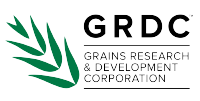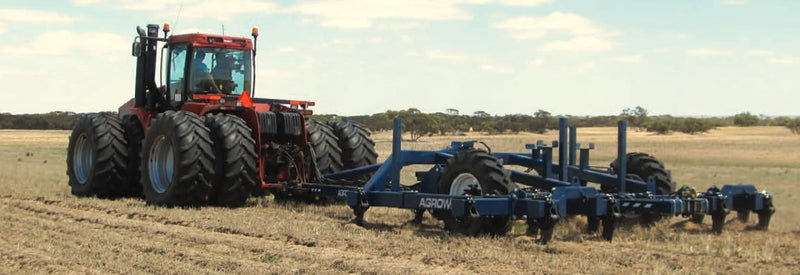Recent GRDC research has shown that there are significant economic returns and extra grain yield benefits when soil constraints are improved via deep ripping.
Maximizing Returns: The Economics of Deep Ripping for Your Farm
Findings from analysis conducted by the Grains Research and Development Corporation (GRDC), provides valuable insights into the economic viability of deep ripping practices. The substantial investment required for deep ripping demands a careful cost-benefit analysis, considering various site-specific factors and seasonal variations.
We have summarised the key points below. For the full analysis, please refer to the GRDC Fact Sheet: Economic of Deep Ripping: Cost–benefit analysis of deep ripping for your farm
The problem: Soil compaction poses significant challenges to crop root penetration, and moisture and nutrient access at deeper levels.
The solution: Deep ripping loosens soil beyond traditional cultivation depths and offers potential yield enhancements, particularly in compacted sandy soil conditions.
Key Findings:
-
Significant Economic Returns: Soil constraints improvement through deep ripping offers substantial economic returns.
-
Magnitude and Longevity of Yield Benefits: The additional grain yield benefits and their duration significantly influence the returns from deep ripping operations.
-
Capital Costs and Responsive Paddocks: Whole-farm gains are shaped by the capital cost and the proportion of paddocks responsive to deep ripping.
-
Impact of Operational Costs: Changes in operational costs, such as fuel and additional fertilizers, have minimal impact on the economic viability compared to capital costs.
-
Profitability Assessment: Deep ripping is deemed profitable when the present value of benefits over an expected period exceeds costs at a required discount rate.
Example Analysis:
An analysis conducted at Bute, SA, on siliceous sand soil with high penetrometer resistance demonstrates a remarkable 283% return over a seven-year planning horizon. Deep ripping at a depth of 50cm significantly impacts crop yields with an increase of up to 1 tonne per hectare, showcasing its economic viability.
Factors to Consider for Whole-Farm Approach:
-
Precise Soil Treatment: Identify the right areas of paddocks for deep ripping, considering soil moisture conditions and coinciding with sowing and soil amelioration.
-
Cost Management: Minimize upfront capital costs through various ownership models like outright ownership, syndicated or second-hand purchase, or utilizing contractors.
-
Crop Rotation Selection: Opt for crop rotations with faster returns based on grain prices and their responsiveness to deep ripping.
-
Controlled-Traffic Farming: Implement controlled-traffic farming to prevent re-compaction and extend the benefits of deep ripping.
-
Time Management: Ensure efficient time management across the farm to prevent delays in critical tasks like sowing due to soil amelioration programs.
-
Risk Mitigation: Address crop establishment risks post-amelioration through improved management practices and technical solutions.
Conclusion:
By considering whole-farm factors and employing precise soil treatment strategies, growers can maximize returns and sustainably improve their agricultural productivity, as highlighted in the information provided by the GRDC.

DOWNLOAD GRDC FACT SHEET
Further Reading:
Subsoil amelioration: balancing costs with benefits - Agriculture Victoria - Decision Support for Grain Growers: Subsoil Amelioration, May 2024
